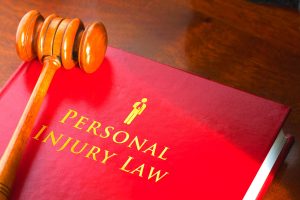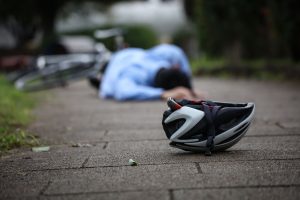What’s the Cost of Hiring a Cape Coral Personal Injury Lawyer?
 It’s reasonable that anyone considering any type of service would first inquire how much it’s going to cost. Hiring a Cape Coral personal injury lawyer is no different in that regard. But it’s important to understand that there are some key differences in how, when, how much, and even if you pay a Florida injury lawyer – compared to other service providers, but even compared to lawyers in other practice areas.
It’s reasonable that anyone considering any type of service would first inquire how much it’s going to cost. Hiring a Cape Coral personal injury lawyer is no different in that regard. But it’s important to understand that there are some key differences in how, when, how much, and even if you pay a Florida injury lawyer – compared to other service providers, but even compared to lawyers in other practice areas.
Personal injury lawyers practice a type of law called “torts.” A tort is some act or failure to act that causes harm to someone else and rises to the level of a civil wrong (as opposed to criminal) for which the court can impose liability. The most common torts arise from personal injuries stemming from negligence, the failure to use reasonable care when one had a responsibility to do so. Typical tort cases are motor vehicle accidents (motorcycle accidents, car accidents, bicycle accidents, truck accidents, etc.), medical malpractice, and premises liability/dangerous property cases.
How Attorneys Determine Fees
How much a Cape Coral personal injury lawyer charges for taking on a case will depend on several factors, including:
- The attorney’s experience, reputation, and ability.
- The fee customarily charged in that area for similar legal services.
- The time and labor required, the difficulty of the question involved, and the skill required to handle the case successfully.
- The potential value of the case, and the results obtained. (Generally cases involving serious injuries, multiple insurance policies, and clear fault/injury cause are going to have a higher overall value – though this can be offset by elements like complexity, numerous injured parties, etc.)
Understanding Contingency Fees
You do not pay upfront attorney’s fees for the services of a Cape Coral personal injury lawyer. Injury lawyers typically assess the value – and viability – of your injury claim upfront for no cost. They’ll tell you if they think you can win, and whether they can help. If they agree to take you on as a client, you still don’t pay attorney’s fees upfront. Those are only paid at the end of the case, and only as a percentage of what you win. This is referred to as a contingency fee structure. Continue reading





 Florida Personal Injury Lawyer Blog
Florida Personal Injury Lawyer Blog



 Whether we’re talking about a motor vehicle accident, medical mistake, or slip-and-fall, one of the surest paths to unfair financial compensation is signing off on the insurance company’s initial settlement offer without first running it by a
Whether we’re talking about a motor vehicle accident, medical mistake, or slip-and-fall, one of the surest paths to unfair financial compensation is signing off on the insurance company’s initial settlement offer without first running it by a  One of the first questions a lot of people ask when they’re first considering filing a Fort Myers personal injury lawsuit is, “What is my case worth?”
One of the first questions a lot of people ask when they’re first considering filing a Fort Myers personal injury lawsuit is, “What is my case worth?” A traumatic brain injury can make it seem as if time is literally standing still. Many of the
A traumatic brain injury can make it seem as if time is literally standing still. Many of the 
 The uneasy feeling of being covertly watched is one that’s inspired more than a few
The uneasy feeling of being covertly watched is one that’s inspired more than a few  As longtime
As longtime  Many serious and recreational cyclists know they can
Many serious and recreational cyclists know they can  For a teenager, that first set of car keys feels like freedom – at last! Parents, of course, usually have a different perspective. There’s often a great deal of apprehension around those first few driving years. Unfortunately, those concerns are well-founded, as the risk of Fort Myers teen car accidents is especially high for new drivers.
For a teenager, that first set of car keys feels like freedom – at last! Parents, of course, usually have a different perspective. There’s often a great deal of apprehension around those first few driving years. Unfortunately, those concerns are well-founded, as the risk of Fort Myers teen car accidents is especially high for new drivers. Car fires aren’t anywhere near as common as they used to be a few decades ago. However, as a Fort Myers crash lawyer, I’ve seen more than a few lead to serious injuries.
Car fires aren’t anywhere near as common as they used to be a few decades ago. However, as a Fort Myers crash lawyer, I’ve seen more than a few lead to serious injuries.






